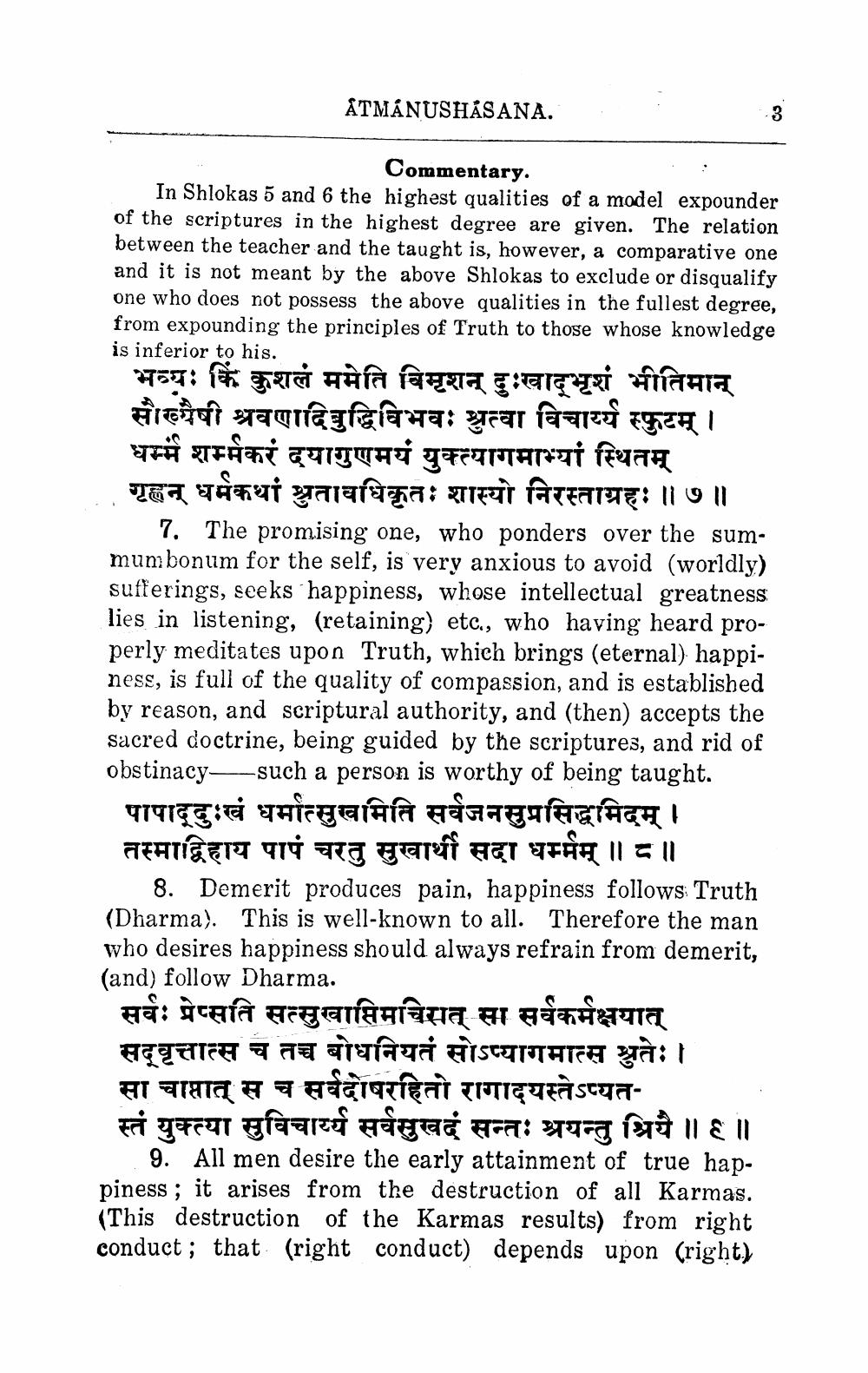________________
ÅTMÁNUSHÅSANA.
Commentary. In Shlokas 5 and 6 the highest qualities of a model expounder of the scriptures in the highest degree are given. The relation between the teacher and the taught is, however, a comparative one and it is not meant by the above Shlokas to exclude or disqualify one who does not possess the above qualities in the fullest degree, from expounding the principles of Truth to those whose knowledge is inferior to his.
भव्यः किं कुशलं ममेति विमृशन् दुःखाभृशं भीतिमान सौख्यैषी श्रवणादिबुद्धिविभवः श्रुत्वा विचार्य स्फुटम् । धर्म शर्मकरं दयागुणमयं युक्त्यागमाभ्यां स्थितम् गृह्णन् धर्मकथां श्रुतावधिकृतः शास्यो निरस्ताग्रहः ॥७॥ ____7. The promising one, who ponders over the summum bonum for the self, is very anxious to avoid (worldly) sufferings, seeks happiness, whose intellectual greatness lies in listening, (retaining) etc., who having heard properly meditates upon Truth, which brings (eternal) happiness, is full of the quality of compassion, and is established by reason, and scriptural authority, and (then) accepts the sacred doctrine, being guided by the scriptures, and rid of obstinacy— such a person is worthy of being taught. पापाद्दुःखं धर्मात्सुखमिति सर्वजनसुप्रसिद्धमिदम् । तस्माद्विहाय पापं चरतु सुखार्थी सदा धर्मम् ॥ ८॥
8. Demerit produces pain, happiness follows Truth (Dharma). This is well-known to all. Therefore the man who desires happiness should always refrain from demerit, (and) follow Dharma.
सर्वः प्रेप्सति सत्सुखाप्तिमचिसत् सा सर्वकर्मक्षयात् सवृत्तात्स च तच्च बोधनियतं सोऽप्यागमात्स श्रुतेः । सा चाप्तात् स च सर्वदोषरहितो रागादयस्तेऽप्यतस्तं युक्त्या सुविचार्य सर्वसुखदं सन्तः श्रयन्तु श्रियै ॥६॥
9. All men desire the early attainment of true happiness; it arises from the destruction of all Karmas. (This destruction of the Karmas results) from right conduct; that (right conduct) depends upon (right)




